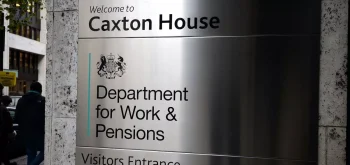Brexit has led to a ‘tsunami’ of delegated legislation which were effectively ‘rubber stamped’ by Parliament and escaped parliamentary scrutiny, according to a legal charity. In a new report, Alexandra Sinclair and Joe Tomlinson of the Public Law Project (PLP) argued that ministers were being given a ‘free hand’ to crystallise regulations into law making.
‘During the withdrawal process, thousands of pages of complex laws and regulations were ‘rubber-stamped,’ with MPs – let alone the general public – having little chance of understanding what laws were passed’, commented Tomlinson, PLP’s research director. ‘There was no serious chance of stopping any of them from reaching the statue books. The reality is that this gave the Government a free hand in law-making and Parliament provided little scrutiny.’
The report analyses the EU (Withdrawal) Act 2018 (the Act) arguing that is ‘representative of some of the principal anxieties surrounding delegated legislation’ by looking at two key principles: continuity as the Act creates a ‘snapshot’ of all EU law in the UK on Exit day; and the distinction between ‘the mechanical act of converting EU law into UK law’ and making ‘substantive changes to certain areas currently covered by EU law’. Other secondary legislation concerned the Nuclear Safeguards Act 2018, The Healthcare (European Economic Area and Switzerland Arrangements) Act 2019 and The Direct Payments to Farmers (Legislative Continuity) Act 2020 amongst others.
These statutory instruments ‘touched on every part of UK life, from food safety to immigration to transport’. ‘Very significant policies such as alterations to deportation thresholds and changes to social security law were placed in secondary legislation with no explanation as to why and no mechanism to check the Government’s decision to do so,’ continued Tomlinson.
The report highlights the powers of section 8 of the the EU (Withdrawal) Act that transfers power from the legislature to the executive and allows the government to, effectively, adapt EU law. It gives ministers extensive powers to create regulations that they consider ‘appropriate’ and, according to PLP, is overly broad and ‘represents many of the anxieties concerning delegated legislation’. The House of Lords’ select committee on the constitution called the legislation ‘an unprecedented and extraordinary portmanteau of effectively unlimited powers upon which the Government could draw’.
The report continues on to highlight concerns including:
- Volume: 622 statutory instruments of 1,835 laid in the 2017-19 parliamentary session were Brexit-related;
- Poor impact assessments: for example, the Secondary Legislation Scrutiny Committee relied on a BBC news article to assess the impacts of the legal changes of the Law Enforcement and Security (Amendment) (EU Exit) Regulations 2019;
- Lack of debate: The urgency procedure was used by the Government 30 times giving delegated legislation legal effect immediately before there could even be a chance for this legislation to be debated as well as the Financial Services (Miscellaneous) (Amendment) (EU Exit) Regulations 2019 had 36 amendments for existing legislation – this was debated for 11 minutes in the House of Commons; and
- Errors and mistakes: During the 2019-19 parliamentary session, the percentage of statutory instruments needing to be corrected had more than doubled







Back from the looking glass